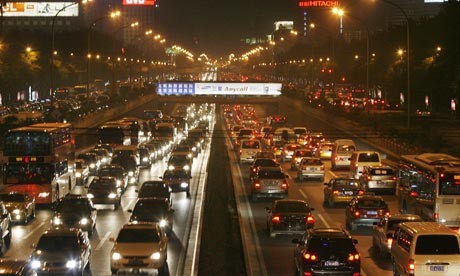In a bid to cut down congestion and pollution in the city, Beijing is planning on requiring local car buyers to show proof that they have secured a parking space first before buying a vehicle.
The city aims to introduce the rule as early as next year, Beijing's Vice Mayor Zhang Yankun said in a meeting at the Chinese capital Friday.
Once enforced, Beijing will become the first city in China to require parking proof for a vehicle requirement and the second city in Asia next to Tokyo, which has a similar regulation.
The rule, first proposed in 2010 as part of a package of measures to manage traffic in the city, could put a damper on Beijing's rising vehicle sales, which started to cap the number of new license plates in the same year, Bloomberg Business said in a report on Friday. The city started awarding new plates through a lottery system in 2011.
"The tricky part is how would the government enforce such rules," Harry Chen, an analyst with Guotai Junan Securities Co. in Shenzhen, told Bloomberg. "Other cities may follow suit and roll out similar policies. One thing is for sure: parking costs will rise because of this."
Parking has become serious problem in Beijing, which is home to nearly 5.6 million cars as of 2014 but with parking spots estimated at just 2.9 million.
Motorists often park illegally in side roads or in residential compounds, blocking traffic and leading to heated disputes. Underground parking spaces have also increased astronomically, with spots in Beijing's deluxe apartment buildings selling for up to 1 million yuan ($160,000), according to digital news outlet Quartz.
Beijing officials have previously introduced laws to alleviate congestion in the capital, including barring cars from roads on specific days each week based on the last digit of the license plate, to requiring permits from drivers not registered in the city before entering the capital.



























